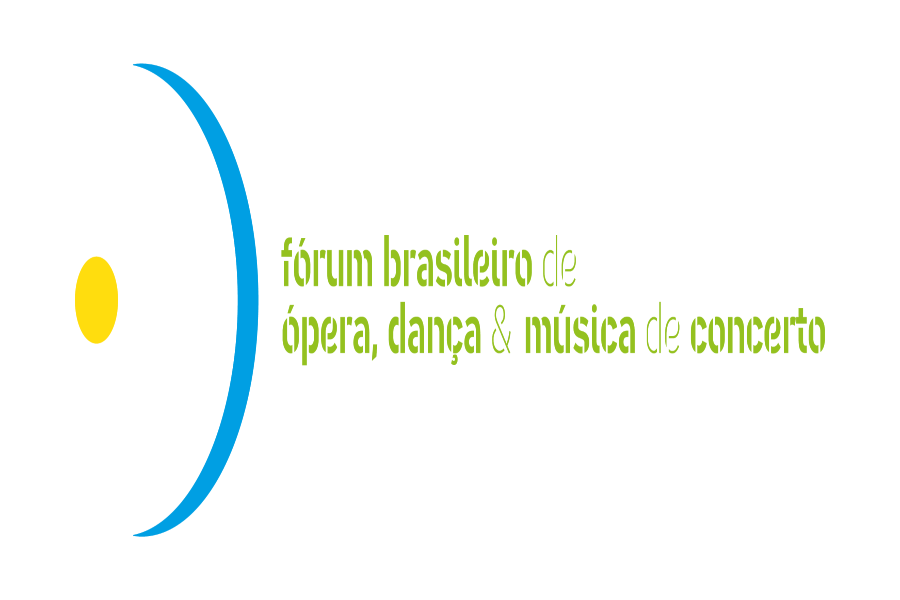Brazilian Forum of Opera, Dance and Concert Music is created

The initiative, in which OLA members participate, was born during the pandemic and acts to unite and strengthen the sector in the country. It already has the participation of 119 institutions and almost 1,400 independent professionals.
Born during the pandemic with the aim of uniting and strengthening the cultural management sector in the country, the Brazilian Forum of Opera, Dance and Concert Music aims to protect, enable and disseminate the production of everything popularly known as ” classical music”. The idea is to bring together institutions and professionals from the entire productive chain of the sector, to strengthen their demands and articulate development models.
The Forum also seeks to implement a positive dialogue agenda with government and private organizations, facilitating the dissemination of proposals and reference documents and celebrating alliances.
The group already includes 119 institutions, spanning from north to south of the country, among them all the great theaters and classical music festivals, all the large concert halls, their artistic bodies, as well as production companies active in this market.
The Forum also has the individual participation of artists and technicians linked to the Opera, Dance and Concert Music sector, which can be incorporated through 14 professional categories, with a growing number of individual subscribers, totaling, until June 2020 , almost 1,400 independent professionals.
The opera, dance and concert music sector has one of the largest productive chains among the artistic manifestations of the country, and the ability to generate employment and train the workforce is strategic in any economic recovery. The segment also directly promotes tourism and local commerce, in addition to acting for the cultural, educational and social development of Brazil.
Arthur Nestrovski, artistic director of the São Paulo State Symphony Orchestra (OSESP), says that it is a pioneering initiative of great importance, symbolizing the will to unite the most diverse artists and institutions. “Osesp could not avoid being with colleagues in so many actions in favor of culture, art and education, especially at this time. The group’s work, in a relatively short period of time, suggests that there will be a continuity in these collective efforts, which can only be applauded”, he assures.
For Flávia Furtado, executive director of the Festival Amazonas de Ópera, the Forum highlights the economic, cultural and social potential of a sector that has installed idle capacity, with a network of 91 theaters with moats, many of them disabled and generating costs for public coffers. It is important that all this latent potential is understood by government agencies, entrepreneurs and investors.
It is possible, with determined actions, dialogue and knowledge of the sector, to raise the industry in a perennial and sustainable way, training specialized workforce for the domestic market and for an international market eager and interested in Brazilian works and productions.
“The birth of a network of opera, concert and dance theaters in Brazil has been desired and expected for many years, and there have been some attempts in this direction. Now, possibly due to an unprecedented crisis, we have managed to unite around a common cause: to guarantee the sustainability of these artistic languages for the next generations, in addition to the economic and social development that we unleash by nature ”, reflects Luiz Coradazzi, artistic advisor to the Theatro Municipal de São Paulo.
The strengthening of joint work is also highlighted by Paulo Ésper, director of Cia Ópera São Paulo, who hopes that the Forum will help consolidate alliances and a greater circulation of shows, and by Eliane Parreiras, president of the Clovis Salgado Foundation – Palácio das Artes , which says: “It is very important to act in a network, creating and strengthening opportunities for exchange, co-production, exchange of technologies and good practices. The Forum plays an important role in the integration of the broad productive chain in Brazil, strengthening public policies and development actions in the sector”.
There is a powerful industry of opera, dance and concert music that is going to emerge in Brazil, as has already been done with the cinema, recovering a huge and important cultural heritage and also promoting the production of new and contemporary titles.
“I believe that the Forum has helped the entire sector and its production chain to organize itself, providing a broad dialogue between institutions, artists, producers and technical teams. In this way, it has been possible to understand the different paths to go through this pandemic moment and to reflect on how actions will develop in the new normality ”, says Ricardo Appezzato, artistic manager of Theatro São Pedro.
For Daniel Araújo, director of Theatro da Paz, the creation of a space such as the Forum is of fundamental importance in order to promote a cyclical debate on the characteristics, profiles and specific needs of each gender, providing an exchange of practices and ideas that It will contribute to the strengthening of this productive chain as a whole, through more specific and well-founded proposals.




